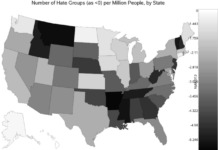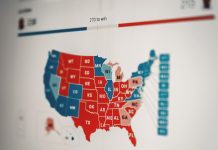Havard Law Professor Larry Lessig announced Monday that he would be ending his bid for the Democratic nomination. In a video posted to YouTube, Lessig cited his reasons for ending his campaign, saying:
“From the start, it was clear that getting into the Democratic debates was the essential step in this campaign…. Our only chance to make this issue central to the 2016 presidential election was to be in those debates, but last week, we learned that the Democratic Party has changed its rules for inclusion in the debates, and under the new rule, unless we can time-travel, there is no way that I will qualify.”
The original Democratic National Committee rules said that a candidate had to poll at one percent in three national polls in the six weeks leading up to the debate, something that Lessig had accomplished.
Then the DNC changed its rule stating that a candidate must have polled at one percent in three polls at least six weeks prior to the debate meaning that Lessig would have been required to meet polling requirements by the beginning of October. Meeting this requirement had been made all the more difficult by the fact that Lessig was often not included on the polls even though he performed at around the same percentage as Jim Webb and Lincoln Chaffee.
Lessig was a different breed of candidate, running solely on the issue of campaign finance reform. His presidency would have hinged on one bill: the Citizen Equality Act of 2017, which would have ensured equal representation, equality in the right to vote, and would provide public funding for campaigns.
Larry Lessig’s was a small campaign that still managed to raise a million dollars through a Kickstarter project.
Lessig may not have been widely known but his message was one that almost every American agrees with. A May, 2015, poll conducted by the New York Times and CBS found that 78 percent of Americans surveyed believed that super PAC money should be limited.
Larry Lessig may no longer be in the running for the Democratic nomination, but what he represents is still very much in the minds of voters: a feeling of disenfranchisement and disillusion with the political process.
Hopefully, Bernie Sanders will become more aggressive on the issue of corporate money in politics. While the Vermont senator is very much against the Citizens United decision that allowed corporations to give unlimited amounts of money to candidates, he has stayed relatively silent on the issue during the debates.
Larry Lessig lost his bid for the nominations because it was easy to shut him down and keep him off the polls. Bernie Sanders is harder to do that to. The avowed democratic socialist encompasses many of Lessig’s views, but with a more dynamic and fleshed out platform. Sanders also polls extremely well, considering his low name recognition.
Lessig ran to fight against the corruption in our current process. He may not have succeeded in his attempt to stop it, but he has helped the public find a voice against the inequality in voting rights.
Featured image by Robert Scoble via Flickr, available under a Creative Commons Attribution-Noncommercial license.





